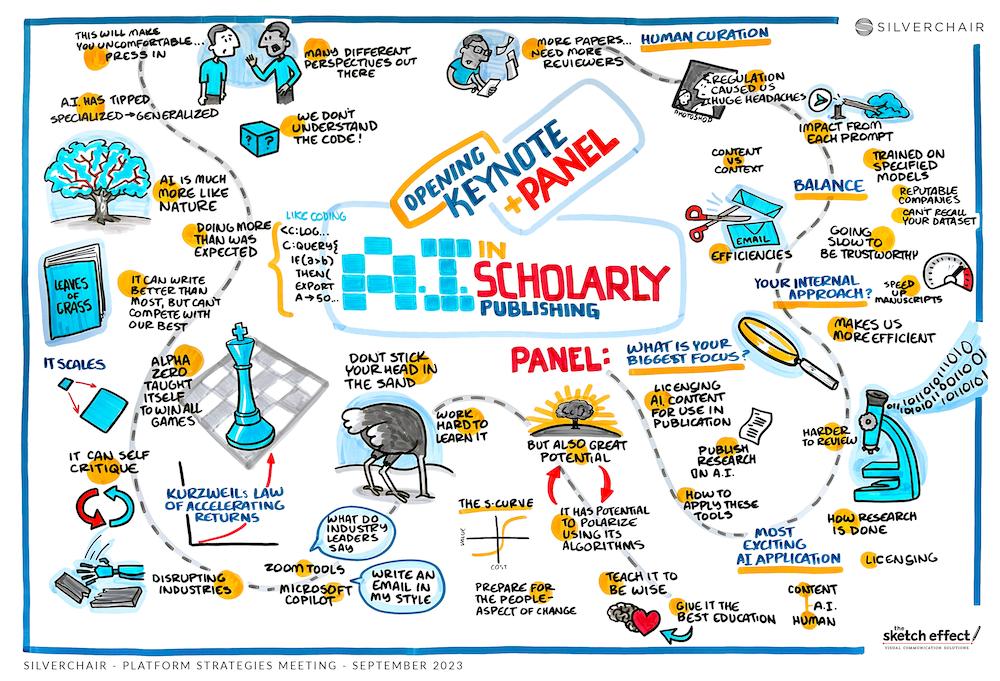
Graphic recording of major themes captured live during the session
Speakers: Holden Thorpe (Editor in Chief, Science Magazine), Jessica Miles (Vice President, Strategy, Holtzbrinck Publishing Group), Chris Broekhoff (President, MEI Global), Betsy Donohue (SVP Business Development, Silverchair), Will Schweitzer (CEO, Silverchair)
At the Platform Strategies 2023 panel discussion on "AI in Scholarly Publishing," industry experts discussed the potential impact of AI and large language models on scholarly publishing. The panelists discussed their organizational focus on AI and shared insights on the potential applications of the technology.
Chris Broekhoff highlighted the importance of licensing and business models when incorporating AI in publishing workflows. There is a balance to maintain between using the best research information and avoiding copyright fraud. He pointed out that while AI could help publishers license their content for AI applications, it also raises issues of transparency, data protection, and fair value attribution for the content used.
Will Schweitzer spoke about using AI tools internally to increase efficiency and to learn how to apply them effectively; emphasizing that there is a need to learn fast. He also pointed out the need for product managers to understand how to navigate the complex ethical considerations associated with AI use. He also emphasized the need for better change management practices to encourage adoption of these tools.
Jessica Miles focused on the potential transformation of research and science workflows through AI. She emphasized the need for careful and responsible use of AI, especially in the context of creating and deploying specialized models trained on academic literature.
Holden Thorp brought attention to the challenges posed by AI in the peer review process. He stressed that AI could increase the volume of papers for review and lead to more errors. He argued for the need for human curation and stringent guidelines to ensure quality of published research.
Overall, our panelists agreed on the transformative potential of AI in scholarly publishing but emphasized the need for cautious and strategic implementation to address ethical, legal, and quality considerations.
View the recording below. To read the full transcript of this session and view the recordings of other sessions, visit the Platform Strategies 2023 Archive.